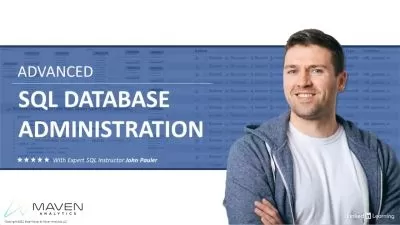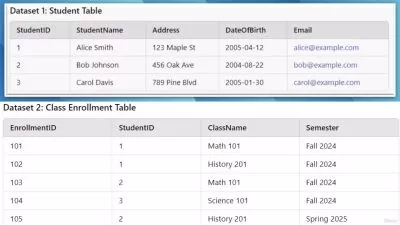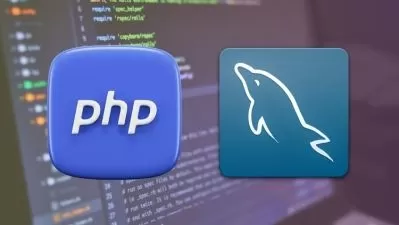About MySQLLearn More
MySQL is a relational database management system based on structured query language SQL. MySQL is used by some of the largest organizations in the world for web databases, data warehousing, eCommerce, logging applications, and more. Udemy offers a wide range of top-rated mySQL courses from comprehensive bootcamps to specialized courses in data analytics.
Sort by:
Sorting
The newest
Most visited
Course time
Subtitle
Frequently asked questions about MySQL
MySQL is an open-source relational database management system that is extremely popular for use with many types of applications. A single MySQL database can contain multiple tables with rows of records in them. A MySQL database is relational because the records in one table can relate to records in other tables. For example, a record in a customer's table can relate to multiple records in both an addresses table and an orders table. This data can be accessed, created, and modified using SQL queries. MySQL uses a version of the SQL language. It is similar to a programming language, but it is only used for accessing data. Software applications can then use MySQL code libraries to generate SQL queries to store and access the data they need to operate in MySQL.
MySQL is one of the most popular open-source database software, so many careers require knowledge of MySQL. The most obvious is a database administrator or a senior database administrator. They ensure that database management systems like MySQL are set up correctly, and databases are structured efficiently. SQL developers also write SQL queries for applications and design MySQL databases and tables. Since data is a big part of their job, business analysts, data analysts, and data scientists will also use MySQL to store, access, and transform data into valuable insights. Many application developers or software engineers will also use MySQL in their careers even though they may mainly write in standard programming languages because their applications have to store, display, and manipulate data.
MySQL is an open-source relational database management system that was developed in the 1990s. SQL, on the other hand, is a query language used to query relational databases. In other words, SQL is the programming language that database developers use to create, update, read, and delete the databases, tables, and records in a relational database management system while MySQL is an application used to keep data in the database structured and organized. SQL is the query language used to interact with MySQL and other relational database software like Oracle, SQL Server, or PostgreSQL. Each relational database management system uses a slight variation on the standard SQL language. Some queries that work with other database software might work with MySQL, and some may not.
The "SQL" in MySQL and PostgreSQL refers to "Structured Query Language." SQL is a standard for interacting with database data. MySQL and PostgreSQL are two implementations of the SQL standard. Both use the SQL language to create, modify, and access database information. Both MySQL and PostgreSQL are open-source databases. PostgreSQL was created in 1985, whereas MySQL was developed in 1995. PostgreSQL is still considered to be better for high-volume, high-security transactional information, whereas MySQL is considered to be better for all-around use and beginners. Queries in both PostgreSQL and MySQL will be virtually identical because they are based on the same standard.
The MySQL project itself does not provide certification. However, respected vendors provide popular MySQL certifications that can help get a database administrator an edge in the career market. Oracle's MySQL certification shows that a database administrator understands the basics of using MySQL and SQL databases. It covers starting and stopping MySQL, creating MySQL architecture, analyzing MySQL architecture, identifying security risks, and more. Similarly, EDB provides certification for PostgreSQL.










